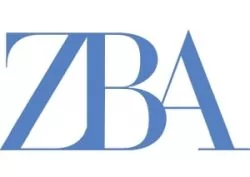Introduction
Restructuring of debts is a common banking practice that aims at assisting stressed debtors. To restructure a debt generally means an act by which a lender grants concessions to the borrower, and can include modification of terms of the loan or security1. But mostly in restructuring, the unpaid interest portion of a defaulted debt is converted into the principal amount, which is termed as "funded interest term loan". No fresh loan is provided by restructuring a debt this way. But the challenge often is the treatment of the security interest created to secure the primary debt and whether restructuring of a debt amounts to "modification in the terms or conditions of a charge" under section 79 of the Companies Act, 2013 ("Companies Act"). The NCLT, Mumbai in State Bank of India v. Gupta Synthetics Limited2 answered this in negative and ruled that if a debt is restructured, without providing a fresh or additional loan, then the security interest created to secure the primary debt continues to secure the restructured debt, without necessitating fresh registration with the Registrar of Companies ("RoC"). A brief look at the ruling.
Brief Facts
Briefly, State Bank of India ("SBI") provided financial assistance to Gupta Synthetics Limited ("GSL"). The loan was secured by charge over the immoveable and moveable assets of GSL, registered with the RoC under the Companies Act, which was modified on various occasions and lastly in 2008. As we will see later, the liquidator of GSL admitted that in 2008, the primary debt was registered with the RoC.
GSL defaulted in the repayment terms and so the loan was restructured in 2010. By restructuring the loan, the unpaid interest portion was converted into a "funded interest term loan". And notably, no fresh (or additional) loan was provided. GSL was later admitted for the corporate insolvency resolution process under the Insolvency and Bankruptcy Code, 2016, which failed. Therefore, the liquidation proceedings of GSL were initiated.
The liquidator of GSL classified a major portion of SBI's claim as "unsecured" because the "charge" registered with the RoC under section 77 of the Companies Act to secure the primary loan, was not modified in 2010 - when the primary loan was restructured. Simply put, the liquidator took a view that a "funded interest term loan" amounts to "modification in the terms or conditions of charge" in terms of section 79 of the Companies Act and therefore, in 2010, SBI must have registered charge with the RoC to record such modification. SBI assailed this decision before the NCLT, Mumbai.
Restructuring of Debt is not Modification
SBI's position before the NCLT was; (a) no fresh loan was provided to GSL after 2008, and especially in 2010 when the loan was restructured; (b) the restructured loan (also, "funded interest term loan") is nothing but the recapitalization of the "unpaid interest portion" of the primary debt; (c) the security interest created by GSL to secure the primary loan secures principal amount, interest, costs, charges and thus also secures the "funded interest term loan". This position finds support in the Andhra Pradesh High Court judgment in A.P.State Financial Corporation v. Guruvayuran Appan Swamy Oils, Foods and Facts Ltd3. The Andhra Pradesh High Court ruled that a "funded interest account" is nothing but interest accrued on the "secured" term loans for which no further charge needs to be registered with the RoC.
SBI also relied on the "doctrine of revival" recognized by the Delhi High Court in State of Punjab v. Grindlays Bank Limited4. Here the Delhi High Court ruled that if on account of non-registration or otherwise, a later created charge is or becomes void, then the equitable doctrine of revival will apply to revive the earlier created charge. Therefore, SBI's charge created to secure the primary loan will be revived, (assuming) if "funded interest loan" amounts to modification of terms of the registered charge and such modification is not registered with the RoC.
The NCLT, Mumbai, by its order dated 21 November 2023, agreed with the SBI's position and ruled that (a) the terms of a facility cannot be treated as "modified" simply because overdue facility or unpaid interest is rechristened as a "new facility"; (b) the phrase, "modification in the terms or conditions or the extent or operation of a charge" under section 79(b) of the Companies Act should be given "liberal" interpretation in favour of the lenders so that the security interest created in favour of the existing lenders is not prejudiced; (c) in addition to the documents specified in regulation 21 of the IBBI (Liquidation Process) Regulations, 2016, the liquidator must rely on other documents such as CERSAI report to verify the extent and operation of a charge. The NCLT directed the liquidator to treat the entire claim of SBI as "secured".
Conclusion
NCLT took a progressive, liberal, and correct interpretation of "modification in the terms or conditions or the extent or operation of a charge" under section 79(b) of the Companies Act. The ruling conclusively determines that a "funded interest term loan" is not a fresh loan and therefore, security interest created (and registered with the RoC) for the primary debt continues to secure the "funded interest term loan". This will help in reducing documentation and ease the process of restructuring a debt.
Lastly, ZBA advised and represented SBI before the NCLT, Mumbai in this landmark judgment and we are thankful for this opportunity that settled a contentious issue in favour of banks.
Footnotes
1. RBI June 7 2019 Circular
2. IA No 2228 of 2020 in CP No. 2889 of 2019; order dated 21 November 2023
3. MANU/AP/0414/2011
4. 1980 SCC Online Del 25
The above is a generic analysis and should not be regarded as a substitute for specific advice based on the facts of a client's objectives and specific commercial agreements reached. Please do reach out to us at mail@zba.co.in for any queries.


